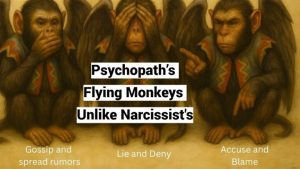Nature of Social Media
- Social media is not a communication tool but rather a platform for like-minded people to form groups and reinforce existing beliefs, often creating echo chambers where opposing views are ignored. Attempting to use social media for genuine debate or changing minds is ineffective and often met with hostility such as blocking or trolling [00:00].
- Social media should be understood as platforms for building communities, not media in the traditional sense, as they lack neutrality, objectivity, and true debate [02:00].
Building Communities on Social Media
- Success on social media comes from identifying trending topics that align with one’s agenda and posting content that attracts supporters, thereby increasing influence and strength [05:10].
- Influencers typically avoid engaging with critics or dissenters and focus on creating a supportive community by blocking or banning opposition [06:00].
- Intimacy within the community is vital for stickiness, achieved by revealing personal vulnerabilities and realities carefully to build trust and loyalty among followers [08:30].
- Sharing hopes and solutions, along with truthful content grounded in reality, promotes motivation rather than just criticism or negativity [11:50].
Managing Identity and Messaging
- Politicians must decide their core identity early and remain consistent to avoid losing trust and followers. Key identity decisions include being inclusionary vs. exclusionary, past-oriented vs. future-oriented, and focusing on construction vs. destruction [14:20].
- Image management on social media is discouraged; instead, let an authentic image emerge from consistent actions and speech [13:30].
Integrity and Perception
- Avoid corruption, both in reality and appearances, as perceptions can be more damaging than actual facts. Example provided of Supreme Court judge Clarence Thomas to illustrate the importance of managing appearances [16:10].
Motivation vs. Manipulation
- Motivating people means empowering them with roles and visions, whereas manipulating involves forcing people to behave against their true nature, which breeds hatred and backlash [17:20].
Nuance and Complexity in Politics
- Politicians should embrace nuance and avoid oversimplified “splitting” (all good vs. all bad) because reality is complex. Though this may reduce popularity, it reflects wisdom and credibility [18:30].
Wisdom vs. Popularity
- The choice between being a wise politician or a popular figure is crucial; wise politicians often suffer but effect real change, while popular figures gain material benefits but leave no lasting legacy [19:30].
- Wisdom requires thoughtful action, openness to collaboration, and avoiding arrogance and self-centeredness typical of “selfie culture” [20:50].
Role of a Politician
- A politician’s main role is guiding people from fantasy to reality, leading with clear vision and grounded truth [21:50].
Note: Timestamps correspond to approximate minutes and seconds from the transcript for easy reference.
Psychology
[00:00] Introduction & Gambling Addiction Statistics
Global and US gambling addiction prevalence; links to suicidal ideation and abuse.[05:00] Professional vs. Compulsive Gamblers
Speaker’s personal experience; difference between calculated vs. addictive gambling.[08:30] Gambling Disorder Defined
Behavioral addiction, not compulsion; reward-system driven.[15:40] Addiction to the Process, Not the Outcome
Anticipation, uncertainty, and risk as the real “drug”; losses as self-harm.[28:50] Gambling & Mental Health Disorders
Co-occurrence with NPD, BPD, psychopathy; shared traits like grandiosity, magical thinking, and cognitive biases.[35:40] Grandiosity & Magical Thinking in Gambling
Cognitive distortions and pathological reality perception.[45:00] Responsible Gambling Tools Critiqued
Betting trackers & limits seen as ineffective.[48:00] Gambling as Society’s Organizing Principle
Finance, military, and healthcare framed as “gambling-like systems.”[59:30] Gambling, Narcissism & Probability
Societal narcissism tied to risk-taking and probabilistic thinking.[01:08:00] Resistance & Nostalgia for Certainty
Pushback against probabilistic society, longing for rigid order.[01:15:00] Gambling as a Hidden Addiction
Comparison to alcoholism; telescoping effect; anecdotal stories.[01:38:00] Gambling Apps & Future Trends
Tech-driven isolation; rise of AI, crypto, and app-based gambling.[01:45:30] Sports, Aggression & Gambling
- The discussion explored the complex psychological dynamics of gambling disorder, distinguishing it from professional gambling and emphasizing its nature as a process addiction linked to reward systems rather than impulse control or compulsion. The conversation highlighted strong associations between gambling disorder and personality disorders like narcissistic, antisocial, and borderline personality disorders, focusing on shared traits such as grandiosity, defiance, and magical thinking. The dialogue also examined the evolving landscape of gambling through technological advances, its societal normalization, and the symbiotic relationship between gambling, sports, and narcissism, setting the stage for a follow-up on treatment and recovery.






